
Juan Pablo Ballester is a Cuban-born artist who works mainly with photography and video art, although he has also worked with installations and performance art. He has also developed activities as a curator, assistant curator and cultural manager.

Ángeles González-Sinde Reig is a Spanish scriptwriter, film director and politician. She served as Minister of Culture of the Government of Spain from April 2009 until December 2011. Her appointment was received with anger and rejection by the Spanish Internet Community, due to González-Sinde's opposition to P2P file sharing and the alleged conflict of interest due to her ties to the film industry. A strict anti-piracy law enacted in Spain in December 2011 has become known colloquially as Ley Sinde, or the Sinde Law, as she was seen as the primary backer of the measure.
Juan Vicente Aliaga is a Spanish art critic who has written widely on contemporary conceptual art as well as on gender and queer theory. In his pioneer 1997 book Identidad y diferencia: sobre la cultura gay en España, co-authored with José Miguel G. Cortés, he expressed criticism of the assimilationist strategies of mainstream LGBT+ associations in Spain, advocating instead for a politics of difference and the reappropriation of slurs like "marica" and "maricón", similarly to what happened with "queer" in English-speaking countries.

Mónica Mayer is a feminist Mexican artist, activist, and art critic whose work includes performance, digital graphics, drawing, photography and art theory. As a conceptual artist, curator, art critic and art theorist she has been engaged in various forums and groups, and has organized workshops and collective movements. From 1988 to 2008, she was a columnist for Mexican newspaper, El Universal. She continues writing for various blogs.

Marisa González is a Spanish multimedia artist. She is considered a pioneer in Spain for the use of the new technologies in contemporary art. She works in distinct disciplines like photography, installations, video-art or net-art. She has been Vice President of the association Mujeres en las Artes Visuales MAV, from 2010 until 2016.
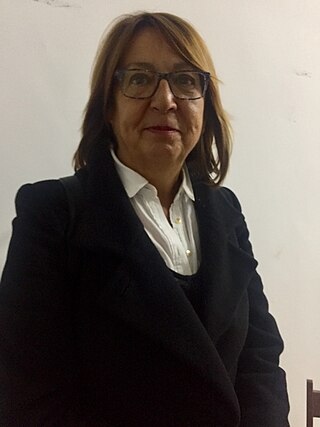
Rocio de la Villa is a Spanish university professor, art historian, curator, researcher and art critic. She has edited and collaborated in the edition of distinct catalogues and publications related with the art and the position of the woman in the artistic world. In 2014 she was rewarded with the Prize MAV in the modality of Criticism of art. She also goes by the names Rocio de la Villa Ardura and Rocio Villa-Ardura.

Marian Lopez Fernandez-Cao is a Spanish university professor, curator and researcher, specializing in art, feminism, art therapy and social inclusion. Since 1992 she has been a professor in the Universidad Complutense of Madrid, and is expert on the artist Sonia Delaunay.

Ana de Miguel Álvarez is a Spanish philosopher and feminist. Since 2005 she has been a titular professor of Moral and Political Philosophy at King Juan Carlos University of Madrid. She directs the course History of Feminist Theory at the Complutense University of Madrid's Instituto de Investigaciones Feministas.
Luz Donoso Puelma, also known as Luz Donoso, was a Chilean graphic artist, muralist, political activist, and teacher. Beginning in the mid 1960s, Donoso was one of the most prominent participants in the muralist movement that supported Salvador Allende’s presidential campaign. In the first months of the dictatorship she was dismissed from her teaching position at the University of Chile, like many of her colleagues, and shortly after co-founded an artist run work space and forum, Taller de Artes Visuales (TAV).
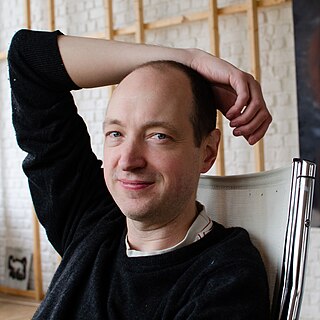
Philipp Fröhlich is a German painter who lives and works in Brussels. His figurative paintings are influenced by his studies of scenography in the class of Professor Karl Kneidl at Kunstakademie Düsseldorf and he frequently uses models for the composition of his works.
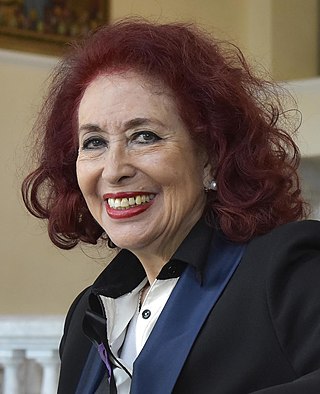
Lidia Falcón O'Neill is a Spanish politician and writer. With a degree in law, dramatic art, and journalism, and a PhD in philosophy, she has stood out for her defense of feminism in Spain, especially during the Transition.

Andrea Graciela Giunta is an Argentine art historian, professor, researcher, and curator.
Feminist genealogies in the spanish art 1960-2010, in Spanish, Genealogías feministas en el arte español: 1960-2010 was an exhibition held from 24 June 2012 to 24 February 2013 at the Contemporary Art Museum of Castilla y León, in León, Spain. It was developed by Patricia Mayayo and Juan Vicente Aliaga, who are curators and academic university teachers and researchers, and showcased over 150 works by 80 artists. The exhibition originated from extended research, ended in a publication with the same title, in which the leading specialists in the field collaborated, such as Rocio de la Villa, Isabel Tejeda, Beatriz Preciado, Noemí de Haro, among others.
Tlacuilas y Retrateras was one of the first feminist art collectives in Mexico. It was founded in May 1983 by Ruth Albores, Consuelo Almeda, Karen Cordero, Ana Victoria Jiménez, Lorena Loaiza, Nicola Coleby, Marcela Ramírez, Isabel Restrepo, Patricia Torres and Elizabeth Valenzuela based on a feminist art workshop taught by Mónica Mayer at the Academia de San Carlos, National School of Plastic Arts (UNAM).

Eli Bartra is a feminist philosopher and a pioneer in researching women and folk art in different places of the world, but particularly, in Mexico. She is the daughter of the writers Anna Murià and Agustí Bartra, two Catalan refugees in Mexico.
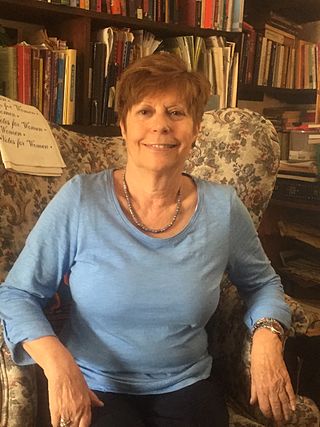
Ana Lau Jaiven is a Mexican feminist, academic and researcher at the UAM Azcapotzalco. She began studying Mexican feminist movements in 1980, and has gone on to study women in the Mexican Revolution, and women's movements and groups throughout 20th-century Mexican history. Francesca Gargallo places her in a group of Latin American feminist historians alongside Julia Tuñón, Ana Arroba, Edda Gabiola and Araceli Barbosa.

Suzi Ferrer (born Susan Nudelman, also known as Sasha Ferrer, was a visual artist based in San Juan, Puerto Rico from the mid-1960s to 1975. She is known for her transgressive, irreverent, avant-garde, art brut and feminist work.
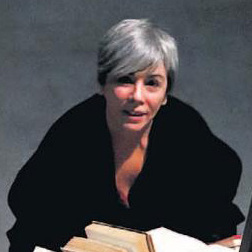
Alicia Martín Villanueva is a Spanish sculptor. At the beginning of the 90s, she began to work with books, which has become her hallmark.

Valeriano Bozal Fernández was a Spanish historian and philosopher. He was a participant in the collaborative project Enciclopedia del Museo del Prado.















